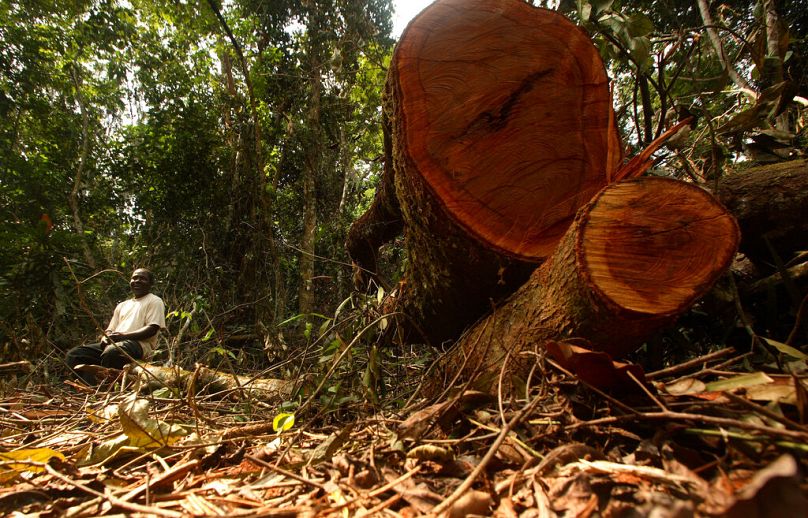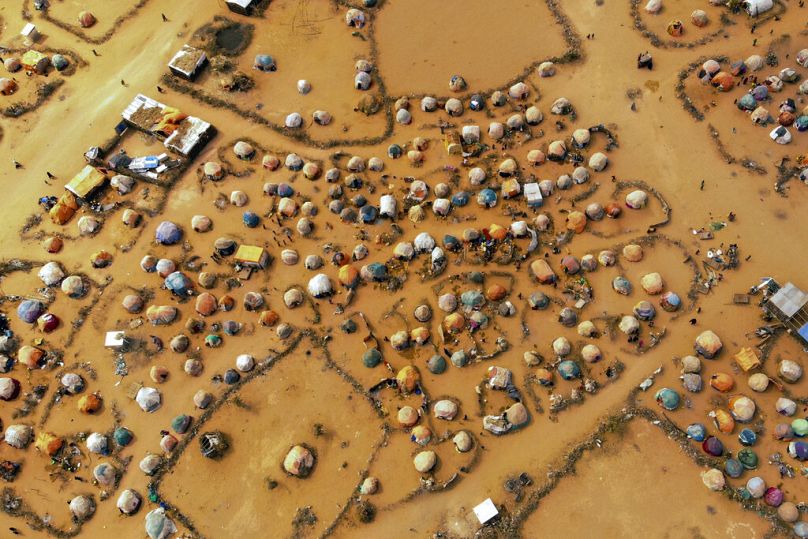For too long, the West has fallen short — regulation has been seen by many here in Africa as instruction rather than collaboration, and there are reasonable concerns that the EU Deforestation Regulation will follow suit, Abraham Baffoe writes.
In early September, African heads of state and leading organisations met in Nairobi to discuss the challenges and opportunities for the continent and to raise their all too familiar concerns about top-down approaches from the West.
Shortly after, 17 countries from the Global South expressed their dissatisfaction with EU regulators as they look to implement the European Deforestation Regulation (EUDR).
These nations criticised the lack of consideration for people on the ground and highlighted the absence of support for businesses in producer countries.
They are not alone. My colleagues across the African continent have for decades raised their concerns that environmental policy has been directed by those who are the biggest contributors to climate change while also the least affected by it.
Regulation as instruction, not collaboration
In a shift away from focusing on loss and damage and the risks facing the continent, Kenyan President William Ruto stated at Africa Climate Week that “we’re not here to catalogue grievances”.
But we do need to acknowledge that the burden of the sustainable food transition is all too often placed solely on producer countries, which are often developing nations, despite demand being driven by wealthy consumer blocs such as the EU.
And I must agree with the president: arguing won’t solve the problem, and both "sides" of the so-called Global North and Global South must understand that we are all aiming for the same environmental transformation.
For too long, the West has fallen short — regulation has been seen by many here in Africa as instruction rather than collaboration, and there are reasonable concerns that the EU Deforestation Regulation (EUDR) will follow suit.
The regulation aims to ensure that the Union no longer imports commodities directly linked to deforestation but falls short of supporting the commodity producers in this transition.
The producers on the ground have raised concerns about legal challenges, insufficient resources and lack of administrative coordination, and have appealed to the EU for there to be an agreed common goal.
Mind the trap of failing to understand realities on the ground
Africa is home to 60% of the world’s renewable energy assets, 18% of the world’s tropical forests and an abundance of minerals and agricultural commodities — including over 60% of the world’s cocoa.
However, it has historically failed to benefit from its unique position, due in large part to exploitation from wealthier powers. The EU must listen to these nations if they are to implement legislation effectively.
The EU is responsible for 10% of global forest loss, and this regulation is a welcome step forward that has the potential to transform the fight against commodity-driven deforestation.
But the EU needs to ensure it doesn’t fall into the trap of implementing a top-down approach that fails to reflect realities on the ground.
Agriculture and forest commodities are the lifeblood of many African economies, providing livelihoods for millions of people across the continent.
Regulations that risk excluding these people risk causing widespread damage to communities and economies.
The needs of both sides should be met
Alongside the burden of regulation, Africa is also facing some of the worst impacts of climate change, despite contributing the least to its effects.
The EU needs to work with African nations and engage in dialogue to ensure that they have the support they need to meet the new regulatory and due diligence requirements through robust partnerships between EU consumer countries and African producers and national and regional initiatives.
These partnerships would have benefits on both sides, from supporting and training smallholders to meet EUDR standards, enhancing technical capabilities and improving land-use planning, to ensuring that producer countries’ food needs, as well as consumer country needs and company targets, are met.
Given the complexities within supply chains, partnerships should involve all food system actors, including corporates, policymakers and financial institutions, but particularly smallholder farmers who are at the centre of Africa’s cocoa, timber, and coffee industries and the core of Africa’s agricultural commodity production.
A common goal and a collective approach
EU governments need to acknowledge and build upon the efforts already undertaken by farmers across Africa.
Many African countries have firmly established themselves as allies in the fight against agriculture-driven deforestation, through partnerships like the African Sustainable Commodities Initiative, which brings together ten countries in West and Central Africa to define principles for the sustainable production of key commodities like cocoa, palm oil, rubber and coffee.
The "Roadmap to Deforestation-free Cocoa", a multi-stakeholder partnership, is another great example of an African-owned and led initiative. It aims to end cocoa-related deforestation in Cameroon, the world’s fourth-largest cocoa-producing country.
We need a common goal and a collective approach. No single stakeholder has the solution for addressing deforestation in commodity supply chains.
EU policymakers need to connect with initiatives like these to ensure that the regulations are effective and to address the root causes of deforestation and complex challenges that producer countries are facing.
Abraham Baffoe serves as Africa and Global Director at Proforest, a non-profit group supporting companies, governments, civil society and others in responsible production and sourcing of agricultural and forest commodities.
At Euronews, we believe all views matter. Contact us at view@euronews.com to send pitches or submissions and be part of the conversation.



